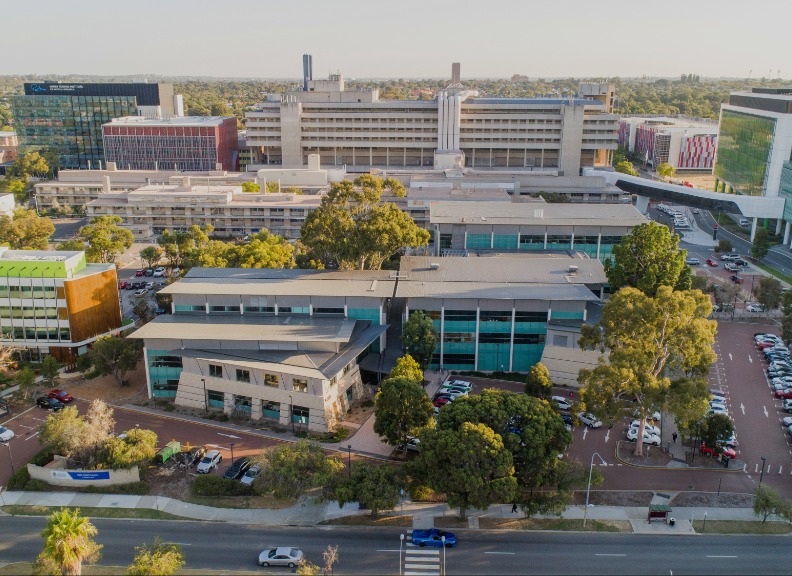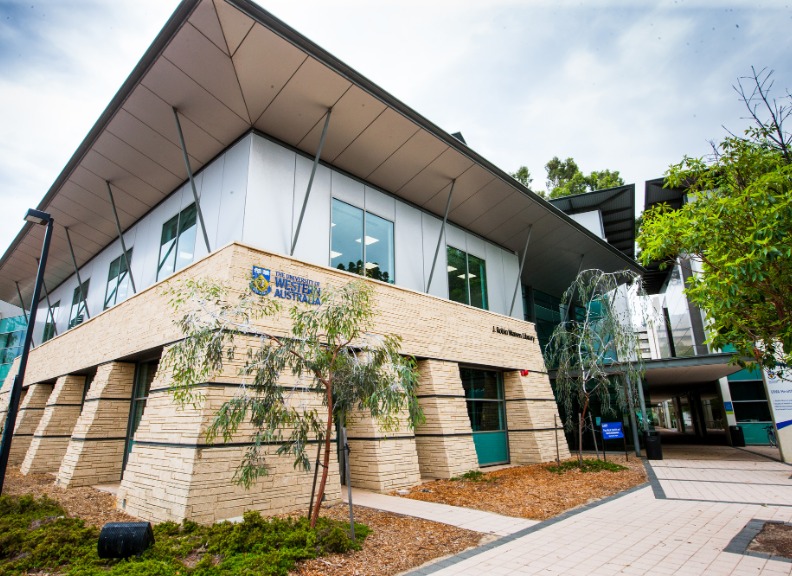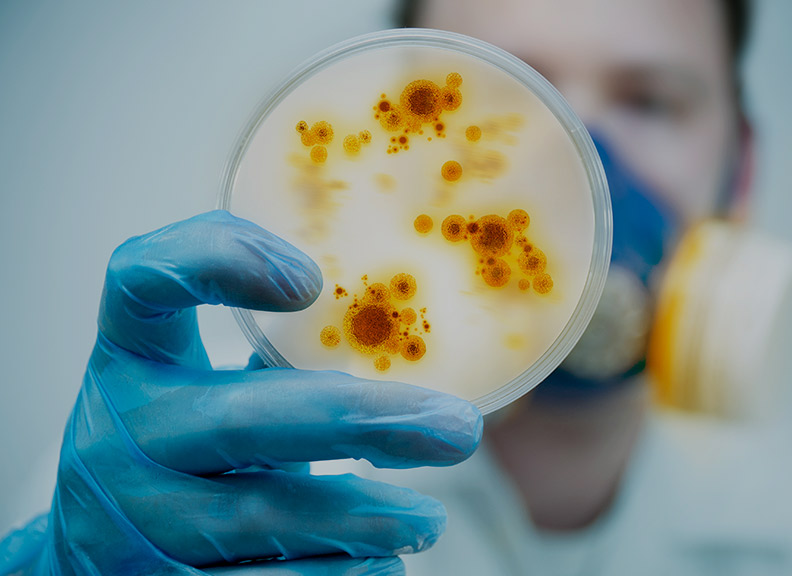Infection and Immunity
Discovering how the microbial world impacts the macro-world we live in
Infection and Immunity at UWA studies microorganisms and the innate immune systems of animals. Our staff are internationally renowned for their research, and collaborate nationally and internationally.
Our team includes Professor Barry Marshall who, along with Dr Robin Warren, received the Nobel prize in 2005 for discovering that the Helicobacter pylori infection causes stomach ulcers.
Microbiology covers the broader concept of micro-organisms in healthy living systems such as environmental ecosystems (terrestrial and aquatic) in addition to agriculture and biotechnology.
We also study the emerging role of the microbiome in the development of healthy immune responses.
Our specialist research areas include:
- Molecular pathogenesis of infectious agents – identifying factors necessary for invasive disease
- Genomic epidemiology of infectious diseases – the investigation and reconstruction of communicable disease outbreaks using the whole genome sequences of isolates collected from patients
- Medical counter measures to infectious disease – developing novel medical counter measures including the use of natural products and inhibitors of virulence properties of pathogens that supplement traditional treatment therapies
- Microbiomes in health and disease – Understanding the nature and source of the microbiome at the start of life
- Diagnostics – procedures to confirm, or determine the presence of disease in an individual suspected of having the disease, usually following the report of symptoms, or based on the results of other medical tests
- Immunology – looking at immunity and related medicine and biology
The role of microorganisms in our lives is incredibly diverse, from priming our childhood immune system for a healthy life, to causing minor infections or severe outcomes and death. Understanding the balance between these extremes will improve healthy living.Charlene Kahler, Associate Professor, School of Biomedical Sciences
Research into antibacterial properties of honey showcased
A UWA research project screening Western Australian honey for bioactivity traits that could support health products is uncovering some surprising results.
Read moreUWA’s Dr Mitali Sarkar-Tyson wins national Project Leader Award
Dr Mitali Sarkar-Tyson from the School of Biomedical Sciences has won the Project Leader Award from the Defence Materials Technology Centre (DMTC).
Read moreMicrobiology Award for UWA’s Charlene Kahler
The Marshall Centre's Deputy Director Associate Professor Charlene Kahler has been awarded the Australian Society of Microbiology Distinguished Service Award.
Read moreUWA Scientists make breakthrough in fight against superbugs
In this collaboration, Professor Alice Vrielink has solved the three-dimensional structure of the enzyme responsible for polymyxin resistance.
Read moreResearch to help fight multi-resistant bacteria
An international collaboration led by scientists from The University of Western Australia has uncovered the three-dimensional molecular structure of a protein, called EptA, which is responsible for multi-drug resistance in many disease-causing bacteria.
Read moreResearch projects
Our current research activities include strong international partnerships:
- Identification and characterisation of virulence associated genes in Burkholderia pseudomallei Identification and molecular epidemiology of exotic and endemic mosquito-borne viruses
- Immunopathogenesis of mosquito-borne infections
- Developing immunotherapies to treat allergies and inflammatory diseases using Helicobacter pylori-based products
- Pathogenesis determinants in hyper-virulent Neisseria meningitidis
- Genomic epidemiology of Neisseria gonorrhoeae: unique genetic lineages in remote communities of Western Australia
- Inhibition of the immunophilin family of proteins in multiple bacterial pathogens
- Novel therapeutics against multi-drug resistant Neisseria gonorrhoeae
- Antimicrobial activity of natural products
- Microbiome and metabolome of pregnancy and early life
Projects
- Helicobacter pylori population genomics, antibiotic resistance, and epidemiology studies
-
Our Helicobacter Research Laboratory studies the gastric bacteria, Helicobacter pylori, and collects pylori strains from patients.
We monitor antibiotic resistance to pylori, and the success rate of eradicating H. pylori from different antibiotic regimen.
By sequencing the genomes of H. pylori and studying its evolution to identify the mutations that contribute to antibiotic resistance, we have become world-leaders in Helicobacter pylori research.
We have a very high success rate in culturing and isolating H. pylori, and have developed a successful personalised treatment regimen for multidrug resistant H. pylori strains.
For more information, visit the Helicobacter Research Foundation website.
- Metagenomics approach for anorexia research, translation and evaluation
-
Anorexia nervosa is a psychiatric disorder with severe biological consequences including extreme weight loss and malnutrition.
Previous studies have highlighted links between intestinal microbiota and bacterial metabolites with body weight dysregulation and behavioural changes.
Our project aims to employ whole genome shotgun sequencing to allow the simultaneous study of the potential roles of bacterial and eukaryotic microbiota in anorexia nervosa.
Functional attributes of the intestinal microbiome in anorexia nervosa will be analysed to understand their role in the disease development.
We expect that our eventual results will provide critical information on the role of the intestinal microbiota in the presentation of anorexia nervosa and ultimately guide the development of new clinical interventions to improve treatment outcome.
- The Noisy Guts Project
-
The Noisy Guts Project is dedicated to developing a wearable acoustic belt for the accurate and non-invasive diagnosis of gastrointestinal disorders.
Irritable bowel syndrome (IBS) affects 11% of the world’s population and causes pain, bloating and altered bowel habits.
Currently, there is no specific diagnostic test for IBS but guidelines suggest patients can be diagnosed based on symptoms. However, in practice, doctors typically exclude all other conditions through invasive tests like colonoscopies. These are costly, uncomfortable and carry risks, and still do not provide a positive IBS diagnosis.
The team have used specialist signal processing and machine learning techniques to identify bowel sound features typical of IBS.
More information is available on our website.
- Efficacy and characterisation of natural anti-leishmanial compounds
-
Leishmaniasis is a neglected disease afflicting millions of people around the world and resulting in severe scaring, deformities, high morbidity and death.
Given the drugs currently used are toxic and difficult to administer, there is a need for the development of new safe alternatives.
This project will test a number of naturally derived compounds and inhibitors for their efficacy against Leishmania parasites.
- Bacteriophage biology and use in phage therapy
-
Bacteriophages (phages) are viruses of bacteria with two major roles. They can carry bacterial genes and, through processes termed transduction and phage conversion, they can add new virulence traits to a microorganism.
Bacteriophages can either replicate in bacterial cells and not cause cell death or they can cause bacterial death and lysis once they have completed their replicative cycle.
Lytic phages are useful agents for novel medical counter measures (phage therapy) against antibiotic resistant bacteria and are proposed to be useful probiotics to prevent colonisation of a patient with a pathogen.
Phages in Neisseria sp, Moraxella catarrhalis and Group B streptococcus are currently under investigation in multiple research projects within the Infection and Immunity division.
Industry partners
We conduct our research in collaboration with the following organisations and universities:
- Seattle Structural Genomics Centre for Infectious Diseases
- Beryllium Discovery
- Defence Material Transfer Centre (Australia)
- King Edward Memorial Hospital
- Women and Infants Research Foundation
- CSIRO
- Murdoch University
- Taronga Zoo and Conservation society
- University of Queensland
- Monash University
- University of Melbourne
- Human Microbiome Collaborating Centre






